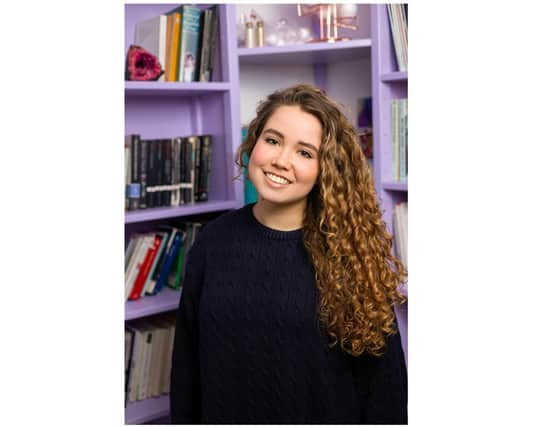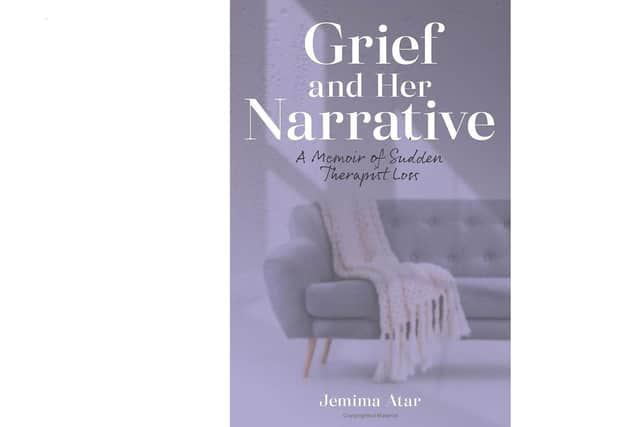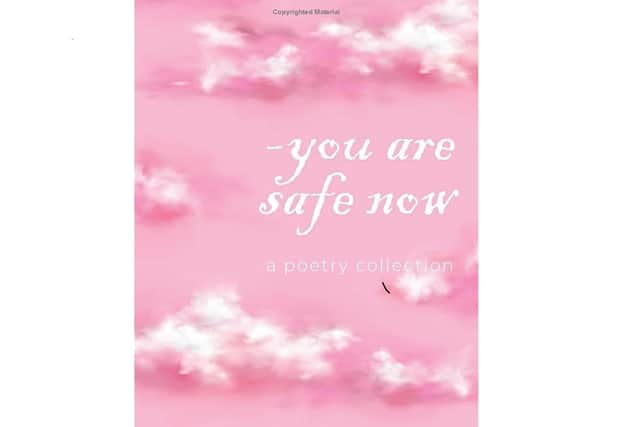Capturing the psych-geist: an interview with author Jemima Atar


Accordingly, her books are noted for exploring a range of mental health issues and this will continue with her debut novel, forthcoming literary fiction title Pourquoi. Here, she talks about her work.
Q. You are training to become a psychotherapist. What attracted you to this career?
A. When looking into psychotherapy, I was primarily attracted to the relational element of this career: I knew that I, as a therapist, would be witnessing people at their most real and authentic, and would be able to offer a healing relationship with respect and empathy at its core. This seemed aligned with my values and simply just made sense to me on an intuitive level. Additionally, having been supported immensely by my own personal therapy, I was fully aware of how important and helpful this relationship could be. And so, when I started my training, I instantly felt at home among the principles and the language of therapy.


Q. You draw upon your training and own experiences for your writing. Why do you feel that mental health issues work so well as a subject for creative exploration?
A. Mental health issues are often shrouded in mystery and stigma, and sufferers can feel that finding the words to explain their individual experiences, or trying to fit their experiences into a checkbox, is close to impossible. The use of metaphor, fiction, symbolism, images, or any other kind of creative endeavour can provide an opening in the road for people struggling to piece together their unique mental health narratives. Because creative exploration provides many new, freeing avenues for people to work with and conceptualise their issues, many forms of therapy, such as gestalt therapy, do in fact have creative processes at their core.
Q. How did you come up with the ideas for your books?
A. My first book, Grief and Her Narrative: A Memoir of Sudden Therapist Loss, was purely based on my personal experiences. I was inspired to write it mostly for my own healing purposes, and partly because I couldn’t find many resources that dealt with the specific kind of loss I was going through, and I didn’t want others to feel as isolated as I did during that time. Similarly, my second book, poetry collection You are safe now, is about my own experiences as a trauma survivor, as well as those of many other survivors I spoke to.


I came up with the ideas for my forthcoming literary fiction novel, Pourquoi, by incorporating many different elements from my psychotherapy training, my psychotherapy readings, my general reading of fiction, and various genres that inspired me such as French Existential literature. Once the basic plotline of Pourquoi was set in my mind, the inspiration just seemed to flood in from every corner of my life, and the ideas were simply emerging constantly!
Q. How much research goes into writing your books?
A. Both my first and second book were based on my own experiences, and so the ‘research’ I had to do in order to write them was primarily carried out in the form of self-exploration and reflection. However, I did look into theories and frameworks on grief and ethics for Grief and Her Narrative, incorporating data from official psychotherapy websites, various books, and interviews and questionnaires I carried out. The research that went into my fictional novel, Pourquoi, was more comprehensive: I found myself delving into the world of art, culture, and world literature, as well as, of course, reading and learning extensively about psychotherapy and its various nuances.
Q. Your second book, poetry collection You are safe now, became a number one Amazon bestseller. Why do you think it struck such a chord with readers?


A. You are safe now is about trauma, specifically sexual trauma and relational trauma, which I think many people relate to in some way or another. The collection included an array of poems about both suffering and healing, interspersed throughout the book in order to highlight the non-linear nature of recovery. I imagine that where the poems about suffering felt relatable, those about healing may have provided readers with hope for their own journeys towards recovery and growth — that was my intention, at least! The collection is also very explicit and candid, which, while potentially shocking for readers, may simultaneously have compelled them to read on and identify with some of its contents.
Q. You are now readying to publish your first novel, literary fiction title Pourquoi. How did you find the writing experience compared to your previous books?
A. Writing a novel was a lot more consuming than writing my memoir and poetry collection, in many senses of the word. It was more intellectually consuming, given that I read widely on various topics related to the novel and beyond. It was also more practically consuming and time consuming, as I had to create a narrative from scratch and sit with my ideas for a long time. Additionally, the novel required a lengthy and detailed planning period, and so, the process of getting lost in and coming out of my fictional world took quite a while!
Q. Pourquoi tells the story of a therapist who crosses professional boundaries in his relationship with a client. What intrigued you most about this premise?
A. I’m intrigued about this premise as I often see it presented as a polarised issue. On the one hand, there are so many TV shows, films, and books that depict a blatantly unethical therapeutic situation as being normal and even thrilling, such as a therapist and a client having a sexual relationship. On the other hand, I find that the literature within the field of psychotherapy can sometimes be written with a kind of ‘decoy honesty’, painting a picture of ‘perfect therapists’ behaving in a textbook manner with all of their clients. I was interested in this discrepancy and I wanted to create a story that was a little less black-and-white in relation to this issue. I wanted to spell out the perspectives of both parties caught in this situation, in a bid to make a case to the reader for the many nuanced characteristics of the debate.
Q. The novel also explores a relationship between people of different class backgrounds. Why did you add in this ‘extra ingredient’?
A. I am interested in and passionate about difference and diversity, and class is one example of difference that I introduce in the novel. I believe we can be enriched by getting to know people who are different from ourselves, and I think that characters (in the fictional and the real world) become a lot more interesting and three-dimensional when they actively come up against difference and thereby learn more about themselves and the world at large. These are ideas that I try to illustrate in Pourquoi by creating entertaining discussions between the two characters about their various class differences. Additionally, I wanted to convey a picture of two people exploring and learning in an intellectual relationship. I wanted the reader to see what the two characters gain from one another, not just how they hurt each other and get into a mess together. There is an element of the story that is purely about two people enriching each other, regardless of their respective roles.
Q. What do you hope readers will gain most from your novel?
A. Like with all of my books, I hope for readers to look inwards as they read about my two fictional characters, asking themselves some of the questions the characters ask each other, and finding some of their own answers. While the story itself is controversial, and arguably paints therapy in a controversial light too, I hope that readers will think critically about what this controversy means to them, and ultimately use it not to shun therapy in a polarised way but rather to understand its complexities, its risks, its healing parts, and its problematic parts.
Q. What is one writing lesson you swear by the most?
A. To beware of the perfectionist inner critic, the one that tells you to write beautifully or not to write at all. I once read a quote by Jodi Picoult: “You can always edit a bad page but you can’t edit a blank page.” I try to keep that in mind whenever my aim is to write well, and what I usually do is remind myself that ‘writing well’ isn’t a goal in itself for me. I just try to write, with as much honesty as I can, and allow my words to lead their own path towards conveying my thoughts. And if I can’t beware my perfectionist inner critic, I include it in my writing instead!
Q. Who are your main literary heroes, and how have they influenced your own work?
A. With regards to fiction, I hugely admire Jodi Picoult and Ian McEwan. The in-depth research that goes into Picoult’s writing as well as the way she gives all her characters an independent voice has inspired me to also use a narrative technique that lets the reader understand the same scenario from more than one perspective. McEwan combines a sharp, reflective use of the English language with uncannily accurate and often haunting meditations on human nature, all of which have influenced the way I try to write honestly, vulnerably, and authentically, but not without the use of metaphor and poeticism. Regarding non-fiction, Gabor Maté and Irvin Yalom are my psychotherapy inspirations, while Matt Haig has motivated me to incorporate relatable mental health themes in my works of non-fiction and fiction.
Q. With three books ‘under the belt’, and at a relatively young age, what is your next literary ambition?
A. I hope to write more books as time goes on, perhaps exploring new themes and literary genres in my writing. I’m curious about delving into topics such as healthy relationships, recovering from mental suffering, and looking at counselling in a humorous way through the lens of a practitioner. I’m also interested in undertaking research projects: during my doctorate in Counselling Psychology, which I’ve just commenced, I’d like to spend a considerable amount of time researching and writing about a topic close to my heart. In this respect, I am particularly interested in writing about alternative approaches to psychiatric diagnosis, secure parenting, and about ways of working with and rehabilitating offenders.
Jemima Atar is the author of Grief and Her Narrative: A Memoir of Sudden Therapist Loss and bestselling poetry collection You are safe now, both of which are available on Amazon. Visit www.jemima-atar.com or follow Jemima Atar on Twitter.